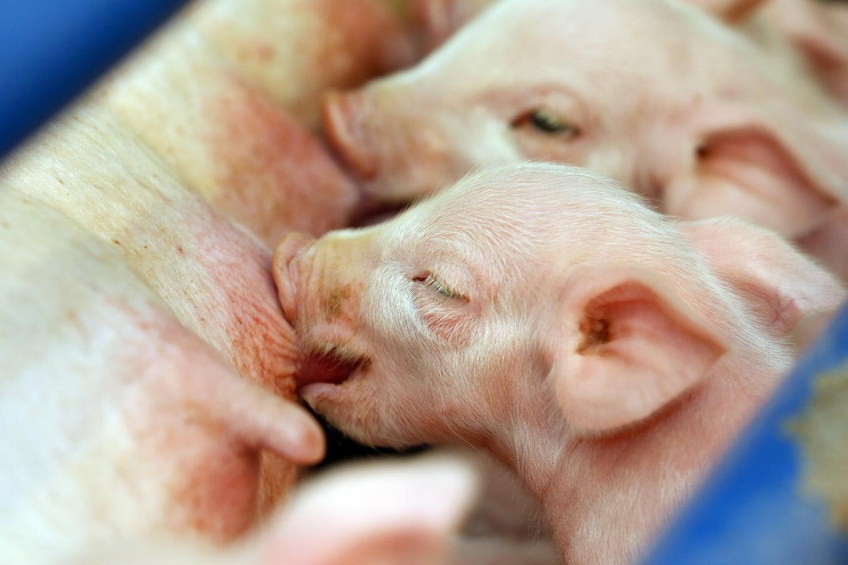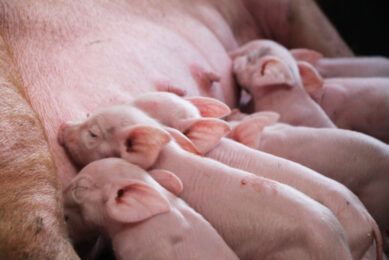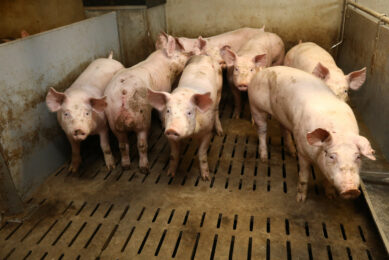Piglets profit when sows are properly fed

Sow nutrition in late gestation may favour survival of newborn piglets by increasing glycogen depots, improving colostrum yield or colostrum composition, or by increasing production of transient milk.
This was concluded from the review: Neonatal piglet survival: impact of Sow nutrition around parturition on foetal glycogen deposition and production and composition of colostrum and transient milk. The review has been compiled by Aarhus University (Denmark) and INRA (France).
The authors address that piglet survival is a major problem, especially during the first three days after birth. To be able to survive, newborn piglets may rely upon three different sources of energy, namely, glycogen, colostrum and transient milk, which orchestrate to cover their energy requirements.
Selection for large litters during the last two decades has challenged piglets even further during the critical neonatal phase because the selection programs indirectly decreased birth weight of piglets and because increased litter size has increased the competition between littermates. Different attempts have been made to increase the short-term survival of piglets, that is, survival until day three of lactation, by focusing on improving transfer of vital maternal energy to the offspring, either in utero or via mammary secretions.
In the review, the authors address that proper sow nutrition is very important to increase the survival rate of piglets.
This study was published in Animal, 2014 Apr 25:1-10











